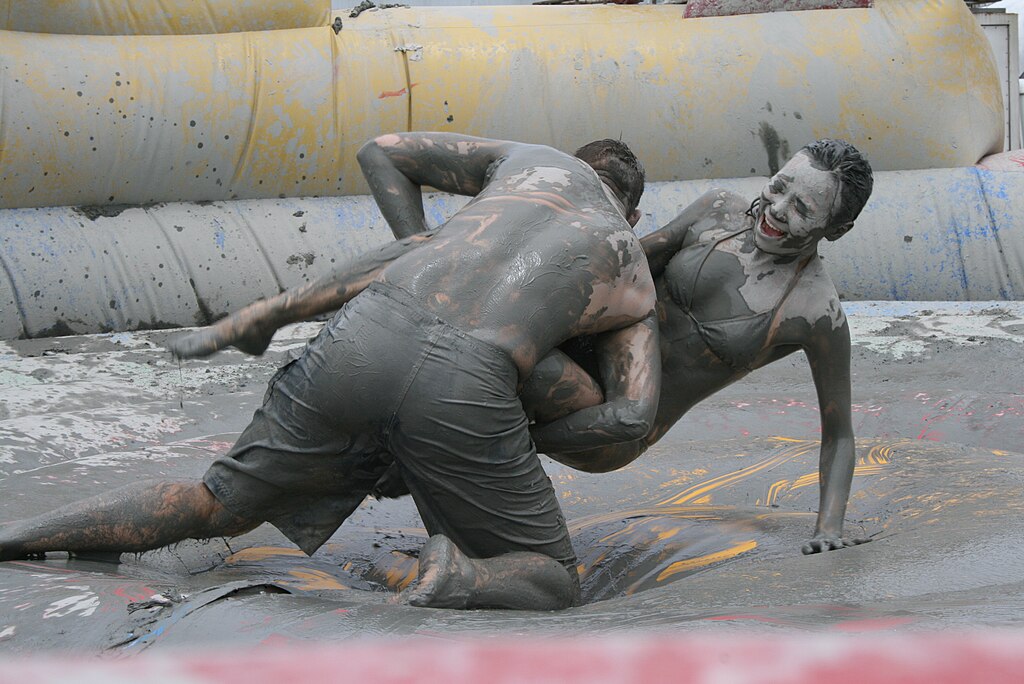It began with whorehouses, but it gets better (or perhaps worse).
More than a decade ago, during my Ph.D., a fellow Earth Science doctoral candidate submitted a draft manuscript to his supervisor. Not being a native, he didn't trust his written English, and let Microsoft Word auto-correct his text. Unfortunately, this meant that when he submitted the document, all his boreholes had been replaced by brothels.
 |
| I have conducted extensive research into the brothels of the Birkenhead region. |
In my subject - palaeontology - this theme continued. Ostracods (tiny crustaceans, also called seed shrimp) were rendered into postcards by spell-check. This only made sense if they'd been found at the seaside.
 |
| Picture postcard. |
Terrigenous muds, meanwhile, daydreamed themselves into erogenous moods. Whether this had anything to do with the clay mineral smectite becoming smuttier was unclear.
 |
| Can I throw you into an erogenous mood? |
Generally confident in my own spelling, I never allowed word processing programs to make changes unsupervised. Recently, however, I found myself re-reading an old copy of the newsletter of the Palaeontological Association, in which I had written a report of the annual meeting.
The penultimate paragraph had me describing a talk on 'pyritized polecats' and I was completely non-plussed. Even by the standards of my usual gibberish this was strange. It wasn't part of an obviously jokey sentence, and the idea that an animal as large as a polecat could be fossilized in fool's gold seemed highly unlikely.
 |
| Do daft pirates search for fool's gold? |
I sat and thought about it. Was I being obtusely clever, referring to something which had long since escaped my brain, or had I just been confused by the science?
And then I remembered the speaker's area of research expertise, and realized what had happened. Somewhere along the publication line, polecats had replaced polychaetes. Turning small, dead, marine worms into pyrite was possible (although turning them into mustelids was clearly easier).
 |
| This is not a polychaete, nor is it pyritized. |
It all gets very annoying, especially as an Englishman being told how to spell by an Americanized computer. The battle between '-ise' and '-ize' or '-or' and '-our' is one of semantics, and I shan't go all Lynne Truss on you, but there are cases where the spelling is important.
A diphthong springs immediately to mind. My dearly beloved was leading an undergraduate field school recently, and learnt that one of her students was scared of soil.
 |
| AAAAAAAARGH! |
This was problematical enough, given that the training course was in archaeology, but then we tried to figure out what the fear would be called.
In English, a clear distinction is made between the prefix paedo- (from the Greek pais, child) and pedo- (from the Greek pedon, ground), so the student could be unambiguously described as a pedophobe. Not in America, though, and had the person in question been a soil lover, we'd have reached a whole new level of madness. Mobs of vigilante lunatics would soon have been smashing up the houses of eminent earth scientists.
The 'ae' combination is useful. It has a distinct sound and a separate spelling, and should be retained in common parlance. It should not be corrected by computers or people. I may be pasty and my writing may have a tendency to drift into the realms of metaphysics*, but I refuse to become a pale ontologist.
Sorry TMBG, I love your music dearly, but I am a palaeontologist.
More than that, though, I refuse to ever become an auto-corrector.
*so one of my Ph.D. supervisors commented, when I submitted him a draft manuscript. Perhaps I should have included some brothels to distract him.
Comments